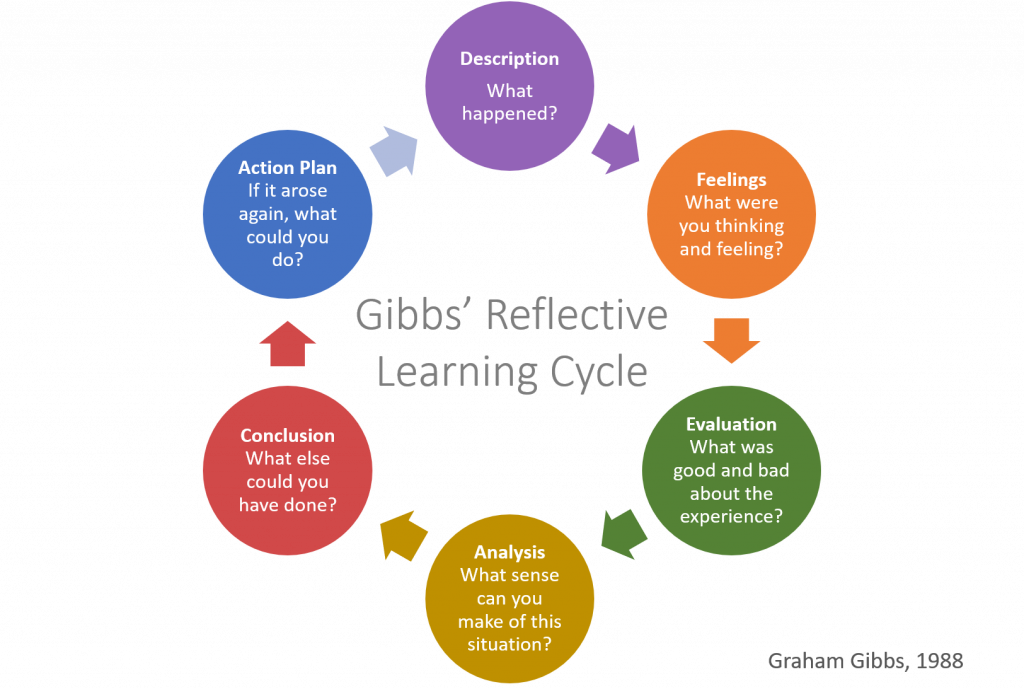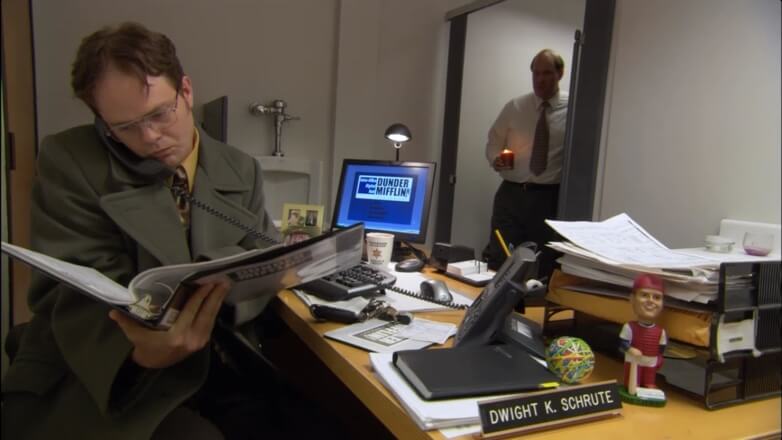The Student Production Manager

From the moment that I began my work placement on the set of Silverpoint, suddenly filling in for a VFX team on the first day of shooting one of the biggest visual-effects sequences in the show, I knew that my experience with EnterYes would not pan out exactly how I imagined it. However, it was surprisingly not until after my three months working on on set that I faced my biggest challenge during my placement- being given actual responsibility! To reflect on this stressful yet incredibly rewarding period during my work placement, I will use the Gibbs’ model of reflective thinking (1988) to explain my thoughts and feelings at the time and evaluate on how I can now look back and consider what skills I can develop from this experience to benefit my future career goals.

Description
As production on Silverpoint was drawing to a close, I expected that my wonderful time with EnterYes would be ending too. However, the owner of the company, Kris, offered me the position to become a Production Manager for the VFX team who were working on the show, in order to ensure that all shots which included visual effects for the first four episodes of the series were ready on time for the deadline at the end of September. This meant than in a short time frame, I went from standing around on set all day with barely any responsibility, to managing a team of eight visual effects artists, as well as liaising with editors and the producers of Silverpoint!
Feelings
When offered the job of Production Manager, I was initially over the moon that Kris had enough faith in my abilities to step up to this challenge, especially as I am still a student with little experience in being employed in the film industry. Naturally, feelings of nervousness and uncertainty came soon after, as I feared that due to my inexperience in the industry, and in post-production in general, that I would fall short in the role, causing the team to not meet their important deadline.

Evaluation
While working as a Production Manager, I felt that my strengths in organisation and time management, skills that I have significantly improved upon throughout my university journey while working as a producer on short films and balancing assignments with various deadlines, helped to allow the VFX artists to work efficiently without becoming too overworked with the looming deadline. To do this, I created multiple spreadsheets for each episode, breaking down what shots were yet to complete, any notes from the producers that required changes, and any technical information that was needed by the editors in Yellowmoon. Additionally, I counted how many shots were left to complete against the number of working days left to do it, so that the workload could be divided evenly among the team, while also calculating the number of shots each artist had to complete daily in order to meet the deadline, which I then monitored on a daily basis. I feel that this was incredibly beneficial to myself and to the team, as they were able to keep track of what needed to be done. However, there were often times that due to how busy everyone was, it was difficult to get everyone to keep me updated on how many shots they were completing, and thus I could not keep track of the workload 100% of the time. In this regard, I feel that I should have improved upon my communication skills and ask several times for updates to ensure I got a response and was not left in the dark.
Analysis
Even though I was feeling the stress of leading a team and working towards a tight deadline as an wholly-inexperienced student, I wanted to use this opportunity as a learning experience which would prepare me for working full-time in the industry after university, knowing more about what is required of you and what skills are the most vital in the job. Duley (1981,611) notes that “the skill of experiential learning in which people tend of be the most deficient is reflection,” and thus I was aware that while I was learning practical information and working on the job, I must also reflect on how I feel like I am learning in terms of my own personal development, a practice referred to by Dewey (1933) as “conscious reflective activity.” To do this, I made notes on the work I was doing each day and any thoughts or feelings I was experiencing, which helped me to look back and evaluate what areas of the job I needed to work harder on or to ask questions about to help develop my skills in preparation for my future career.

Conclusion
As I have mentioned, I was very aware of my inexperience in the role, and this awareness presented itself as an obstacle in terms of my confidence and reaching my full potential. I was grateful that I had experience in working on group projects and films in university, which require elements of leadership and having effective communication skills, but in this role I was no longer with peers who were all at the same stage in their career as me, and instead I was having to lead a team of older, talented individuals who had been working in the industry for years. These feelings of insecurity prevented me from communicating as effectively with the team to aid my own performance, as I feared that if I asked questions or an individual to complete a task that they wouldn’t take me seriously. In hindsight this sounds irrational, and it is definitely a feeling I should have tried to eradicate if I could go back in time.
Action Plan
In terms of how I will prepare for my future career in the film industry, I know from this experience that the main practical skill that I need to develop is communication, and personally I need to improve on my confidence. To do this, I plan to ask more questions instead of trying to improvise, which will help me to be as informed as possible on the job, know exactly what I am required to do, and reach my full potential in whatever role I find myself in. However, as I was able to successfully do the job and effectively organised the team to deliver the workload on time, I will also make sure to reinforce these strengths and know that I have the ability to fill this role or another relevant position in the future!
References
Dewey, J., How We Think, (Boston: DC Heath, 1933)
Duley, J.S., The Modern American College, (San Francisco: Jossey-Bass, 1981)
Gibbs, G., Learning by Doing: A Guide to Teaching and Learning Methods. (Oxford Brooks University, Oxford, 1998)


